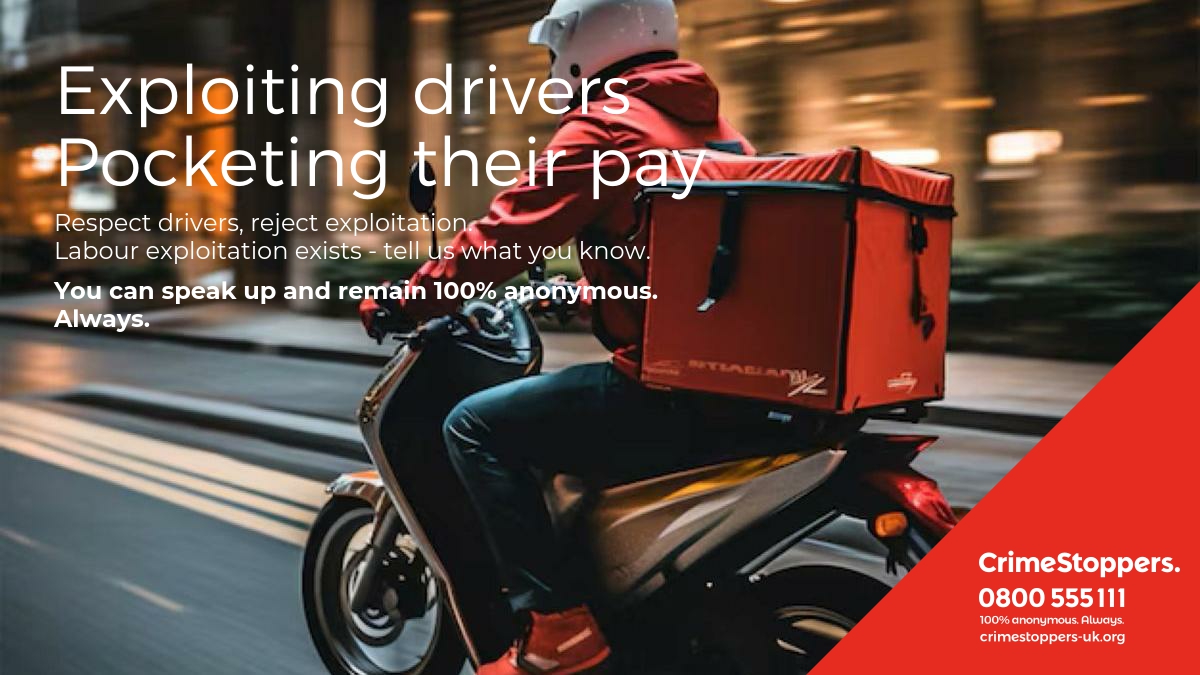Tell us what you know about the exploitation of gig economy workers in Leicester
We're launching a campaign in Leicester to raise awareness and encourage reporting of labour exploitation affecting delivery drivers in the gig economy.

if you have information about the exploitation of workers in the gig econonmy, you can tell us what you know and remain 100% anonymous - guaranteed.
Call free on 0800 555 111 or fill in our online form here on our website - we take information in over 140 different languages.
Multiple languages
If English isn't your first language, we take telephone calls and online forms in over 140 different languages, and our online reporting form is also available in all those languages.
See the language option at the top of this page for these options.
What is the gig economy?
The gig economy refers to a labour market where short-term, flexible, or freelance jobs are common, often facilitated by digital platforms.
Workers in the gig economy are typically classified as self-employed and are hired on a task-by-task basis, such as delivering food, driving passengers, or completing freelance work. While it can provide flexible work opportunities, the gig economy can also leave workers vulnerable to exploitation.
Our campign is in partnership with Leicestershire Police - it has been found that some people are taking advantage of delivery workers by signing up with organisations and using the profiles they haave created with them to accept jobs.
They then pass these jobs to others who are unable to secure work themselves, collecting the payment on their behalf and often paying them only a fraction or even nothing at all.
As a national charity, independent of the police, here at Crimestoppers we want to encourage members of the public to recognise the signs of exploitation and speak out to help protect vulnerable workers in our community, by telling us what they know whilst staying completely anonymous.
Signs of labour exploitation include:
- Workers being paid less than agreed, or not at all.
- Jobs being passed on to others while the original worker receives no or partial payment.
- Excessive hours with little or no rest.
- Threats, coercion, or manipulation to continue work.
- Workers being forced into debt to secure work.
Many individuals who take on these roles do so believing they have no other option, or that they will be paid fairly. However, exploitation can quickly lead to debt bondage and is often linked to other forms of criminal activity and abuse.
Exploitation in the gig economy is a hidden crime that often goes unnoticed - but its impact on vulnerable workers is devastating.
Every report we receive helps protect someone from being taken advantage of.